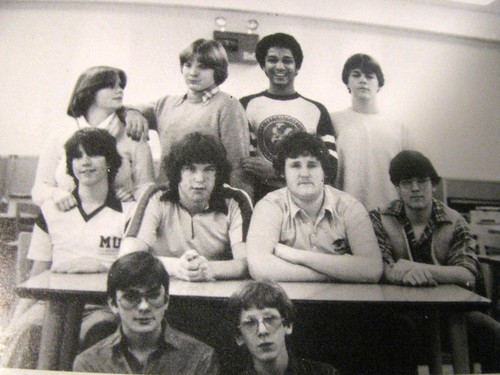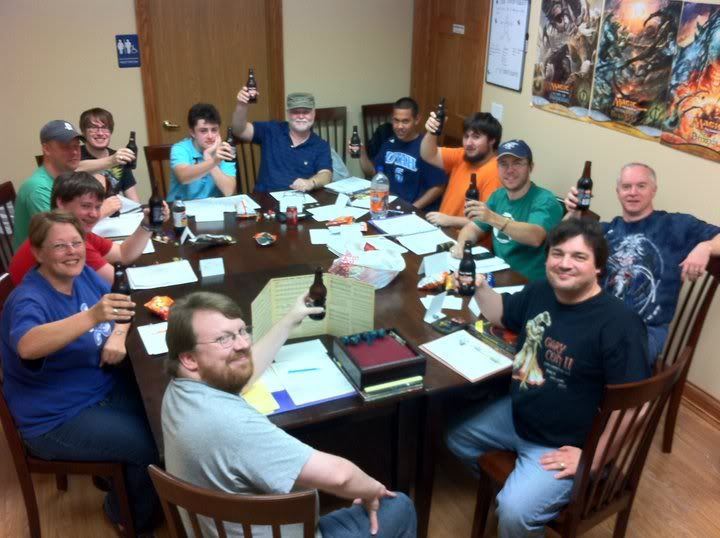A little while ago on Facebook, I asked for anyone wanting
to debate me over the issues relevant to what has been going on in the world
over the past few days, they do the following:
1. Bring facts, not rhetoric.
2. Organize your thoughts.
3. Learn how to stay on subject, and stick to specifics as
opposed to generalizations.
4. Learn the basics of the more common logical fallacies.
I even provided a link to the skeptics guide.org, to read
about common logical fallacies.
So why and I harping on this again? Because I ran into
a Ron Paul Supporter who came up with 26 reasons why President Obama is causing
the downfall of the United States of America. That's right.
President Obama is single-handedly responsible for America's downfall.
Now before I list some of these gems of so-called political
facts (most were in truth rhetoric) please let me be clear about this: I
am very much in favor of the loyal opposition. I believe it is only
natural to have political diagreements with their leaders. I had them
with President G.W. Bush and his administration, and I personally know a lot of
people who do not agree with President Obama. I am okay with that.
However, I am not okay with what is going on with most of the discussion
about President Obama conducted by the most vocal conservatives.
For one, when trying to explain why President Obama
represents the downfall of the U.S., it's best to avoid listing things the
President did not accomplish, which you were against in the first place.
I am supposed to see your point, that the President, is for all intents
and purposes, the worst thing for the U.S. because the President failed to do
things you were against in the first place? How does that work?
For another thing, why is it whenever I ask for facts and
figures, most of what I get is rhetoric and political bias? We all know
statistics can be manipulated, but they are a baseline, which promotes debate.
All rhetoric accomplishes is to burrow one's self deeper in, like a tick.
If you make a claim, give a source. And by the way, I use quotes
because I like the ideas behind them, but I do not use them as factual evidence
and support for my arguments beyond demonstrating how other people think.
How is it you can trust your sources? Look them up. Do a
little digging. I realized a few days ago why talking about all of this
stuff makes me so tired. I try and do research when I bring up a point.
When somebody provides a quote or a "fact," I look it up
to see the quote in context. I read about that "fact" and try
to see where else it leads. I get criticized some times because it takes
me a while to compose my response. I have been told on more than one
occasion I must be "reaching" or grasping at straws because it takes
me a long time to respond. Well, 1: I am doing the work, and 2:
I am a poor typist. Some people need to learn that a well thought
out, reasoned response is a good thing, not a show of poor critical skills.
So here is a sampling of a few reasons why President Obama
is the "downfall of the U.S." f anyone wants the complete list
(because I don't want anyone claiming I am just cherry picking here, send me a
private message and I will send it to you as soon as possible.
1) Poor reaction to the BP Gulf Spill
2) Extending the Bush tax cuts
3) Guantanamo is still open (which I do think is
disappointing)
5) Failure of the DREAM Act
14) Attacking John Boehner for smoking, even though Obama
himself is a smoker
16) Giving a half a billion dollars to Solyndra, only to see
them buckle up within a year
18) His $800+ billion stimulus, which was supposed to keep
unemployment at seven percent, has not stopped it from rising to 9.1%
19) His $450 billion jobs plan is supposed to create a
million jobs. Do the math, and that means government will spend $450,000 PER
new job created. The private sector can hire ten workers for $450,000 -
government possibly, perhaps hires one - maybe, and then only temporarily. Once
the road or bridge is built, the worker is laid off. Herbert Hoover tried the
same thing, using public works projects to spur employment - guess what, it
didn't work. The Great Depression got worse.
21) Wasting his first two years, with Democratic control of
the House and Senate, on a controversial health care reform bill that
squandered his popularity. He might have been better served to focus on the
economy!
25) Having a cabinet and advisers full of people who do not
pay their taxes, and who talk about the inspirational speeches of Mao.
26) One of his first acts as President over-turned the
Mexico City policy, allowing the federal government to fund abortions performed
in other countries. He enters office with an economy going over the cliff, but
priority number one is opening federal funding to abortions performed overseas.
That is not exactly my idea of getting our financial house in order.
* * *
This is what I am up against. Where do you start? When one side is tacitly allowed to list rhetoric as arguments without fact checking or providing sources, it gets annoying. With a list of 26 items, it feels like some poor attempt at presenting what is hoped will be a wall of insurmountable arguments.
I responded to all 26 in kind, with what I hoped was logical rhetoric, but it's time to start rejecting the premise of these kinds of so-called arguments without real evidence to back them up. It's time to make these kinds of conservatives do the prep-work themselves.

